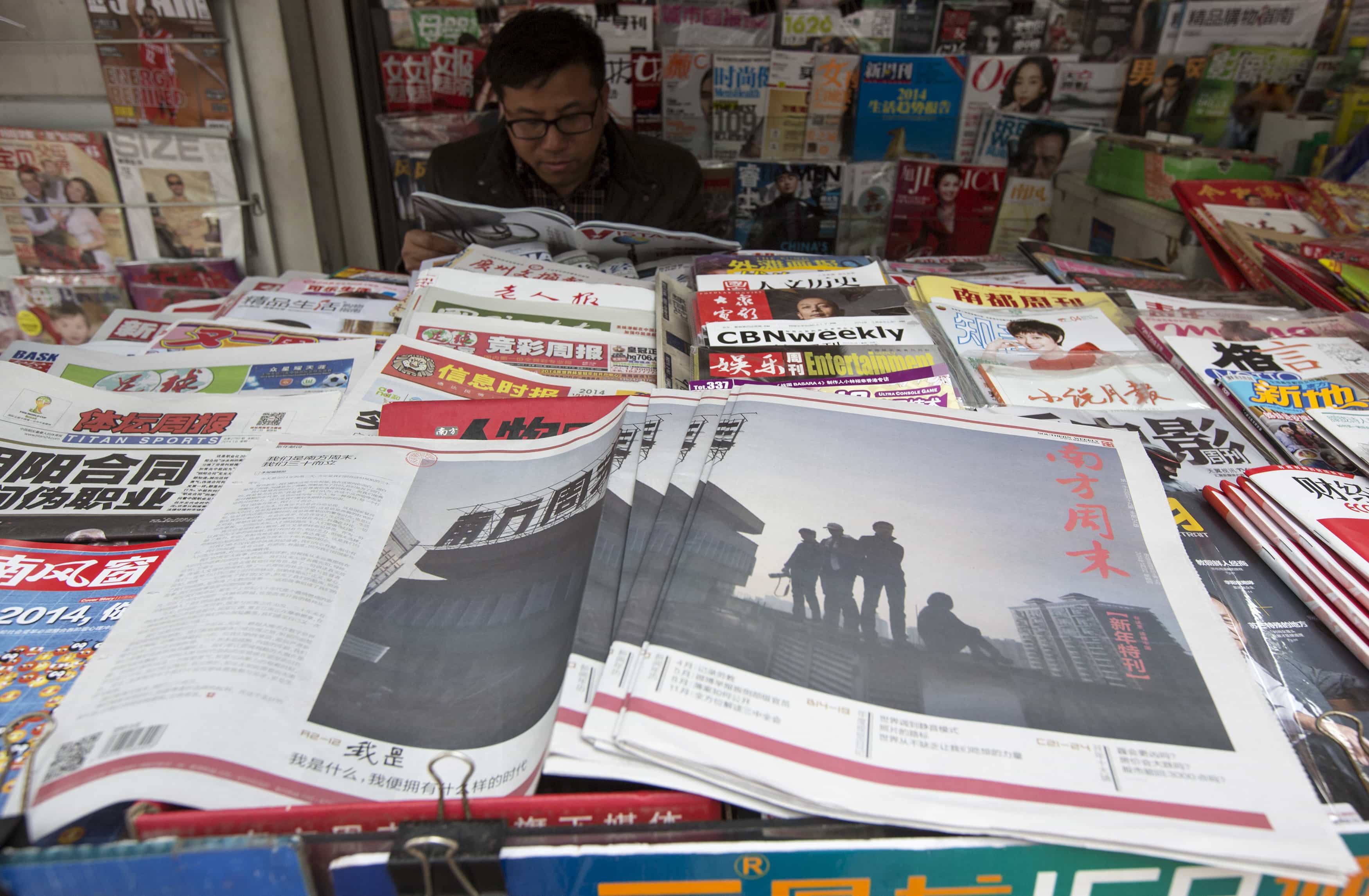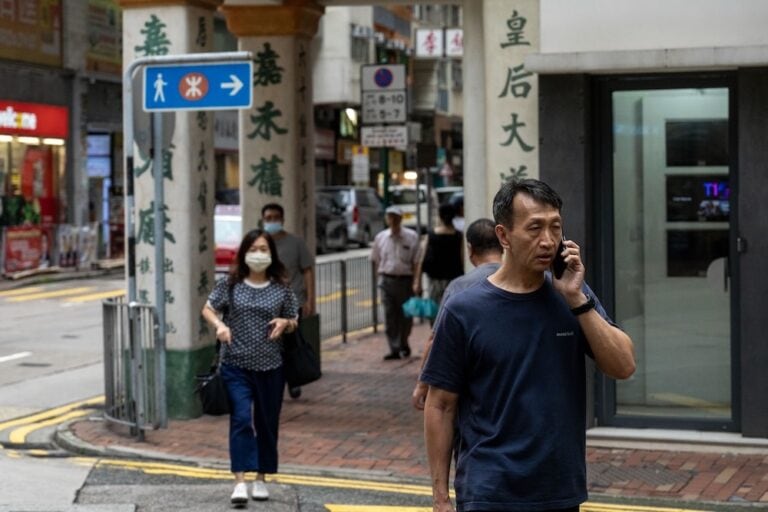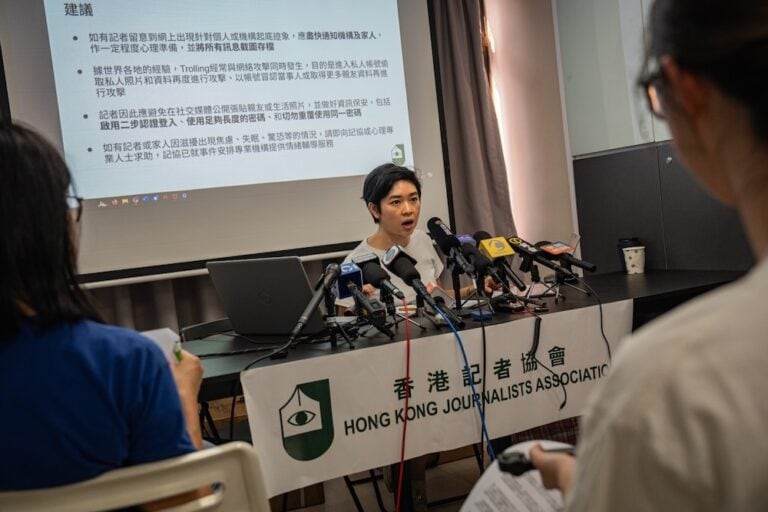IFJ's report documents the continued deterioration of press freedoms in Mainland China, as well as Hong Kong and Macau. It takes its title in direct response to Chinese authorities adopting more repressive measures in 2013 reminiscent of the Mao era four decades ago, including direct censorship, Internet surveillance, abuse of legal process, harassment and intimidation, and televised confessions of journalists and bloggers without trial.
On 28 January 2014, the International Federation of Journalists (IFJ) released the sixth annual China Press Freedom Report, titled Back to a Maoist Future: Press Freedom in China 2013. The report, launched at the Foreign Correspondents Club in Hong Kong, documents the continued deterioration of press freedoms in Mainland China, as well as Hong Kong and Macau. It takes its title in direct response to Chinese authorities adopting more repressive measures in 2013 reminiscent of the Mao era four decades ago, including direct censorship, internet surveillance, abuse of legal process, harassment and intimidation, and televised confessions of journalists and bloggers without trial.
“Press freedom is a human right and the media must be able to perform their professional duties without fear and intimidation,” the IFJ said. “The ongoing challenge for journalists in Mainland China is not only facing a government that prevents the free dissemination of information in the public interest, but also powerful business interests that try to influence and place pressure on the media’s independence.”
Four journalists working in the region contributed to Back to a Maoist Future: Press Freedom in China 2013, and their articles reveal the difficulties faced by the industry, the IFJ said.
The 2013 report highlights the situation for media workers over the past year where Chinese authorities continued to tighten their grip on information and media outlets faced up to a dozen restrictive orders a day. The Communist Party set up a state security committee to strengthen “guidance” of public opinion. Police and the judiciary cooperated with the Central Propaganda Department to suppress online speech. Police initially accused web users of “disturbing public security”, but switched to a variety of other charges after legal practitioners accused them of abuse of power. The Supreme Court ruled that a person could be punished if their message was posted or forwarded a certain number of times. The spontaneous communication tool WeChat became a target for official monitoring. A number of journalists who commonly used WeChat were warned by senior managers to stop using it or resign. State-owned China Central Television broadcast the confessions of several bloggers and journalists, clearly violating media ethics and the principles of free speech and the right to a fair trial.
The IFJ said the working environment for foreign correspondents in China also failed to improve in 2013. Journalists received death threats when reporting in Xinjiang and Hebei, and at least two media outlets were “inspected” after they published reports critical of the authorities. The most troubling case was that of a French journalist who was harassed by Chinese diplomats in France and Thailand after his documentary about Tibet was aired.
There were some minor signs of “progress” in some areas of China. Journalists at two media outlets started landmark labour strikes to fight for editorial independence and a living wage. The courts also used microblogs to broadcast excerpts from several prominent criminal trials, but blocked all but a few selected media workers to enter the court rooms. But these triumphs are backdropped by a media environment that still falls desperately short of international standards.
Press freedom in Hong Kong remains at risk, with photographers and reporters suffering verbal and physical abuse while exercising their professional responsibilities. Several media outlets and their owners suffered attacks and death threats, while Hong Kong authorities failed to protect them and media freedom.
In an echo of Mainland practice, law enforcement bodies in Hong Kong forced the media to surrender raw journalistic materials and Hong Kong’s Chief Executive and Executive Council provoked turmoil by unilaterally changing the rules governing applications for new free-to-air television licences.
The situation in Macau saw a growing trend to self-censorship, but journalists and the public continued to fight for diversification of information through the removal of the monopoly on media.
Press freedom in China and Hong Kong will continue to be at risk in 2014 and will remain a key area of focus for the IFJ.
“Particularly where there is a situation for Mainland journalists who must complete training that is equivalent to brainwashing in order to qualify for press accreditation cards, the need for ongoing monitoring and reporting is critical,” the IFJ said.
The IFJ urges China’s government to reconsider President Xi Jinping and his administration to abolish the press accreditation system and to adopt the Human Rights Council report A/HRC/23/40 of the Special Rapporteur on the Promotion and Protection of the Rights to Freedom of Opinion and Expression. It also calls on the Hong Kong Government to stop using evasive methods to curb the media’s access to information.
“As well as highlighting the pressure applied by political forces, the IFJ needs to remind the business sectors of the Mainland and Hong Kong that a free and independent press plays an important role in the business environment, helping companies to understand the investment situation and to formulate sound strategies,” the IFJ said.
“We continue to support all media workers to remain vigilant and fight for their professional rights and interests in China.”
The IFJ China Press Freedom project has been documenting media violations in China since 2008. See the China Press Freedom Violation Map.



